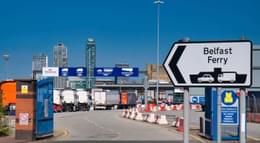
Nationalisation is no antidote to rail woes
Jeremy Corbyn is misguided if he believes nationalisation is the antidote to the rail network's woes, says Comment Central.
In a bid to get on the front foot following what has been a torrid month for the Labour leader, this week Jeremy Corbyn called for the defective Southern rail service to be nationalised.
The Labour leader's call comes amid threats of further strike action, adding to the tumultuous bouts of service delays and industrial action many commuters in the South of England have experienced.
But the Labour leader is misguided if he believes nationalisation is the antidote to the rail network's woes. Supporters of rail nationalisation often cite the example of the East Coast Mainline which was taken into public ownership in 2009 after National Express defaulted on the money they promised the government in return for operating the franchise. Proponents of rail nationalisation argue that since the franchise was returned to public ownership, East Coast has netted a cool £1bn for the public purse, while customer satisfaction levels have surpassed any recorded under a private operator of the franchise.
But look more closely at the figures and a different story emerges. As the Centre for Policy Studies highlights in its 2013 study of Britain's rail network, the link between East Coast's high passenger satisfaction rating and its state ownership is tenuous. Instead, the operator's success is more obviously attributed to the fact the East Coast mainline is the only passenger mainline in the country with effective on-track competition. Indeed, of the two other passenger services to operate on the line (First Hull Trains and Grand Central), neither of whom received state subsidies, and yet both achieved higher passenger satisfaction scores than East Coast.
The finding is reinforced by further evidence from the report, which compared the fate of the passenger network and the freight network, which were both privatised at the same time.
Higher levels of competition on the freight network compared to the passenger network resulted in the former benefiting from greater investment in new rolling stock, higher levels of productivity and reduced costs. As the report identifies: "between 1998/9 and 2008/9, freight operating companies reduced their unit costs by 35 per cent, while the passenger operators increased costs by 10 per cent."
The Labour leader would do well to look at the facts before he embarks on his nationalisation campaign.












